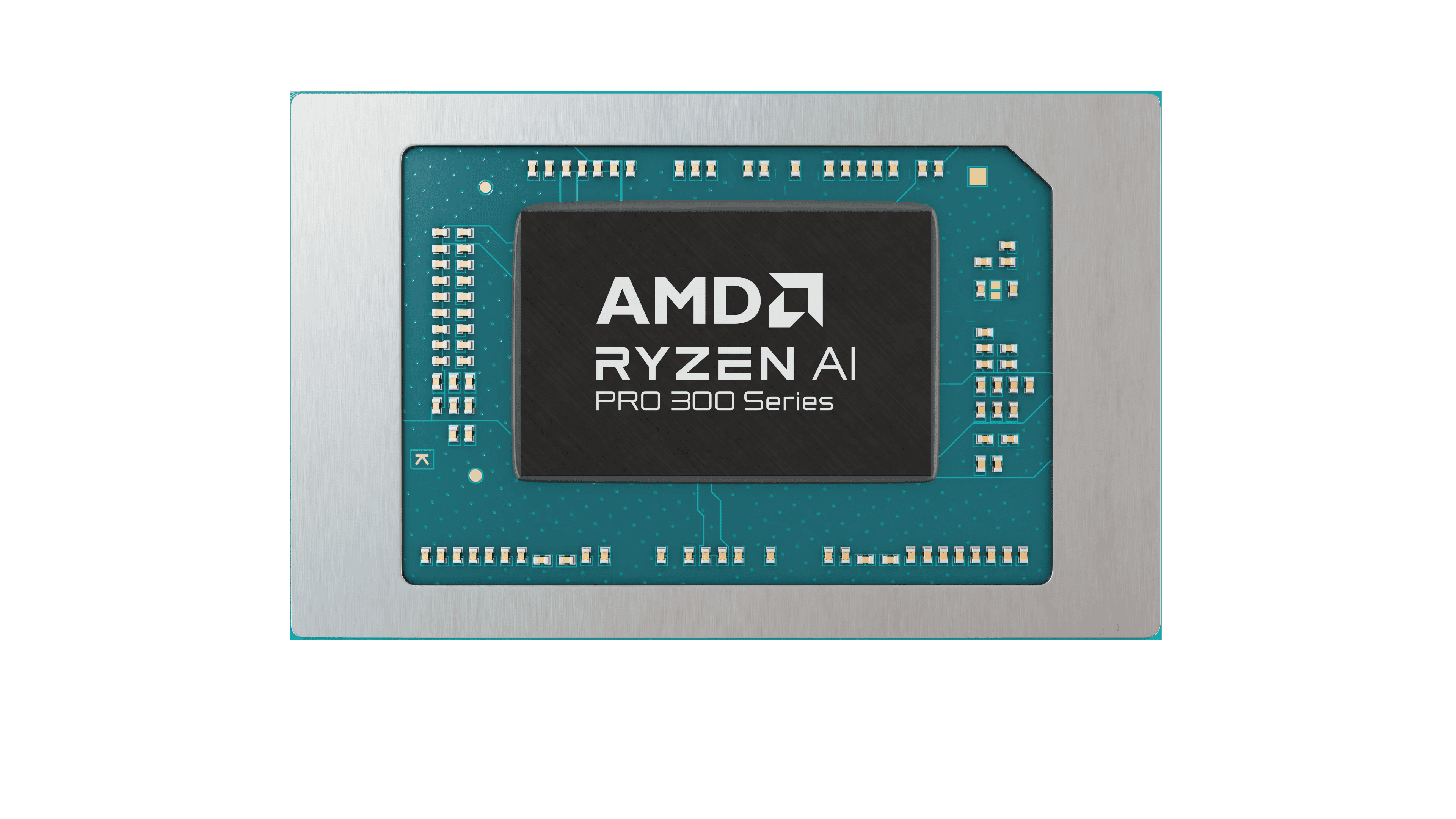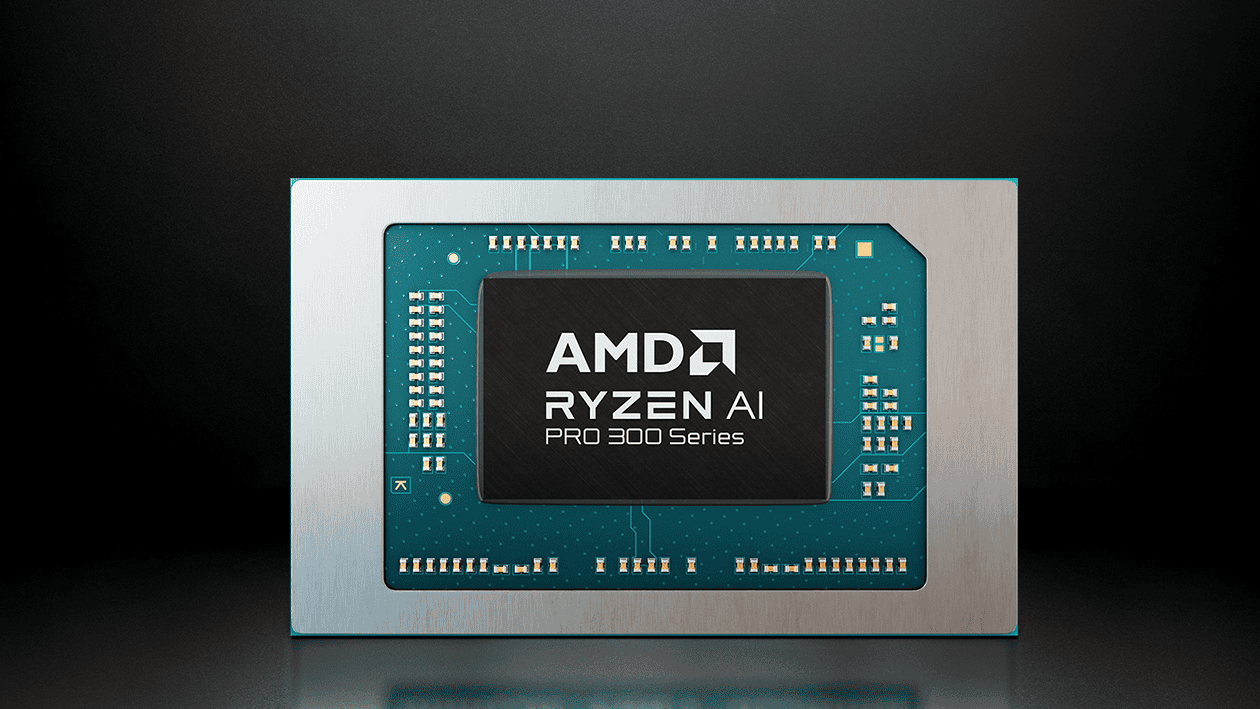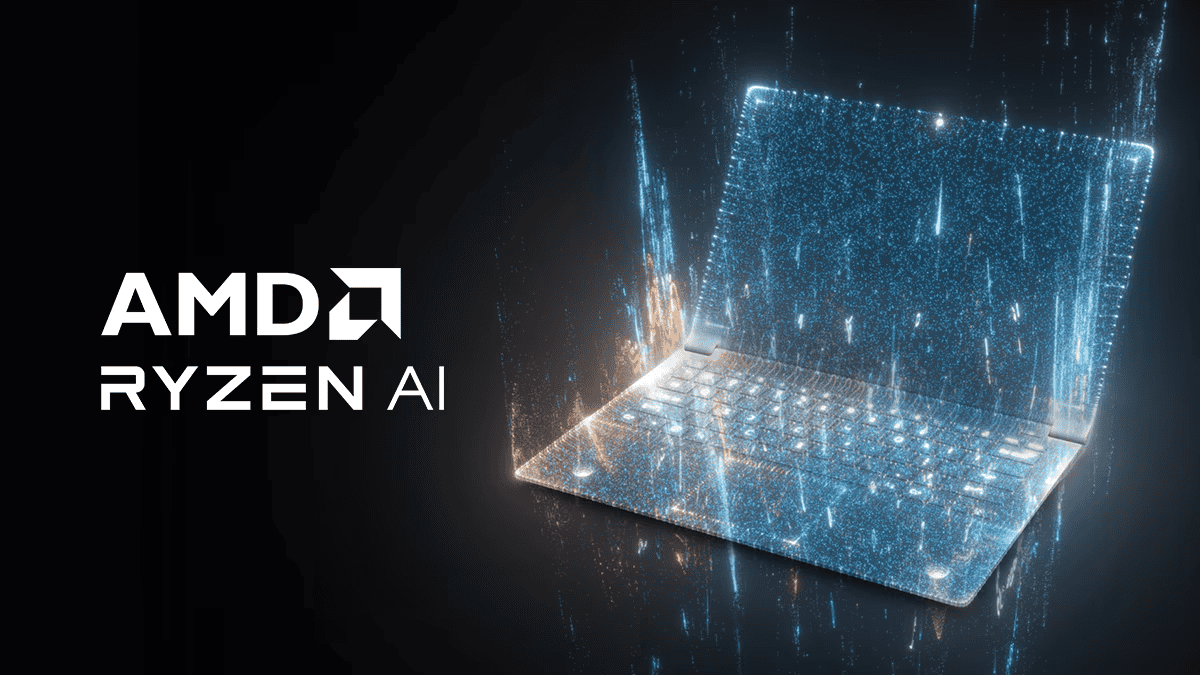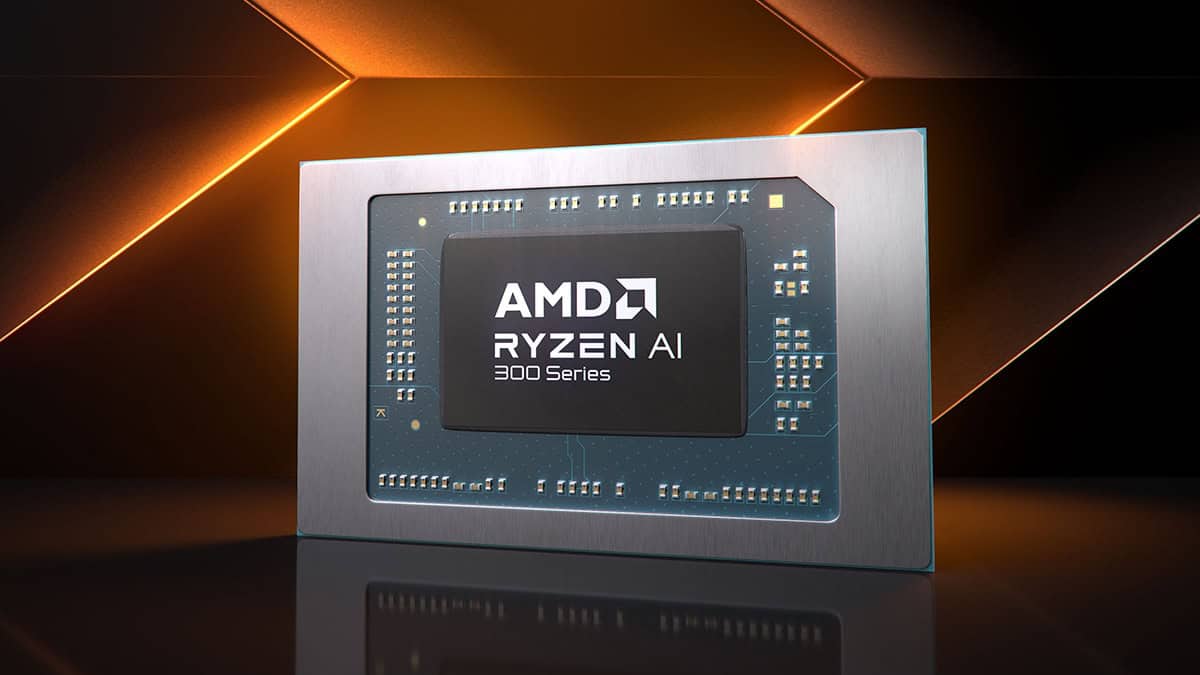AMD’s Ryzen AI 300 series processors bring advanced artificial intelligence capabilities to Windows laptops. These chips combine powerful CPU and GPU performance with a dedicated Neural Processing Unit (NPU) for AI tasks. The Ryzen AI 300 series offers up to 55 peak TOPS (Trillion Operations Per Second) of AI performance, setting a new standard for enterprise laptops.
The processors feature a hybrid architecture with Zen 5 and Zen 5c cores, providing excellent multitasking and responsiveness. They also include improved RDNA 3.5 integrated graphics for enhanced gaming and content creation. This combination aims to deliver transformative AI experiences in thin and light laptop designs.
AMD designed these processors to enable new AI-powered features in Windows 11. The integrated NPU can handle tasks like real-time video enhancements, advanced audio processing, and improved security measures. This hardware-level AI support promises to boost productivity and creativity for users across various applications.

AMD Ryzen AI 300 Series Mobile Processors
AMD recently introduced its Ryzen AI 300 Series mobile processors, marking a significant advancement in laptop technology. These processors are designed to provide a balance of performance and efficiency, catering to both mainstream and commercial users. Let’s explore the key features and capabilities of this new series.
Zen 5 and Zen 5c Architecture
The Ryzen AI 300 Series processors leverage a hybrid architecture, combining Zen 5 and Zen 5c cores. This approach allows for optimal performance when needed and enhanced energy efficiency during less demanding tasks. The Zen 5 cores handle heavy workloads, while the Zen 5c cores focus on background tasks and power optimization, contributing to longer battery life.
RDNA 3.5 Graphics
These processors feature integrated RDNA 3.5 based Radeon 860M and Radeon 840M graphics. This marks a notable upgrade from previous generations, delivering smoother visuals and improved performance for gaming and other graphics-intensive applications. Users can expect a more enjoyable experience with casual gaming and multimedia consumption.
Dedicated AI Engine
One of the standout features of the Ryzen AI 300 Series is the inclusion of a dedicated Neural Processing Unit (NPU). This specialized unit is designed to accelerate AI tasks, such as machine learning and natural language processing. This advancement opens up new possibilities for AI-powered applications on laptops, enhancing productivity and user experiences.

Performance Benchmarks
Early benchmarks indicate that the Ryzen AI 7 350 performs competitively against rivals like the Intel Core Ultra 7 258V and Qualcomm’s Snapdragon X Plus X1P-42-100. This suggests that the Ryzen AI 300 Series can hold its own in the current market, offering comparable performance to other leading processors.
Availability and Future Outlook
Laptops equipped with Ryzen AI 300 Series processors are expected to hit the market soon, with PRO models arriving later in the year. This new series has the potential to reshape the landscape of laptop computing, particularly with its focus on integrated AI capabilities. As AI continues to evolve, these processors are well-positioned to meet the growing demands of AI-powered applications.
Ryzen AI 300 Series Specifications
| Model | Cores | Threads | Base Clock | Boost Clock | Graphics | AI Engine | TDP |
|---|---|---|---|---|---|---|---|
| Ryzen AI 7 380U | 8 | 16 | 3.0 GHz | 5.2 GHz | Radeon 860M | Yes | 15-28W |
| Ryzen AI 7 350U | 6 | 12 | 2.8 GHz | 5.0 GHz | Radeon 860M | Yes | 15-28W |
| Ryzen AI 5 320U | 4 | 8 | 2.6 GHz | 4.8 GHz | Radeon 840M | Yes | 15-28W |
The Rise of AI in Mobile Computing
The integration of AI capabilities into mobile processors signifies a major shift in the computing industry. AI is no longer confined to data centers and cloud servers; it is now becoming an integral part of our everyday devices. This trend is driven by the increasing demand for AI-powered applications and the need for more personalized and intelligent user experiences.
AI in mobile computing can enhance various aspects of our digital lives. From improving productivity with smart assistants to enabling new forms of entertainment with augmented reality, AI is transforming how we interact with our devices. It can also play a crucial role in optimizing device performance, extending battery life, and enhancing security.

As AI technology continues to advance, we can expect even more innovative applications and use cases to emerge. The Ryzen AI 300 Series is at the forefront of this evolution, paving the way for a new era of AI-powered mobile computing.
Key Takeaways
- Ryzen AI 300 series combines powerful CPU, GPU, and NPU in a single chip
- Integrated AI capabilities enable new features and improved performance in Windows 11
- These processors target thin and light laptops with high-performance computing and graphics
Technical Specifications and Performance
AMD has introduced the Ryzen AI 300 Series, a new line of mobile processors that combines powerful performance with advanced AI capabilities. The series features a hybrid architecture of Zen 5 and Zen 5c cores for optimal power and battery efficiency, along with an integrated Neural Processing Unit (NPU) for enhanced machine learning and natural language processing. Early benchmarks show that the Ryzen AI 7 350 competes well with Intel’s Core Ultra 7 258V and Qualcomm’s Snapdragon X Plus X1P-42-100. Laptops equipped with these processors are expected to be available soon, promising a significant impact on mobile computing.
AMD’s Ryzen AI 300 series processors deliver significant advancements in computing power, graphics capabilities, and energy efficiency. These chips offer enhanced performance across various applications, from gaming to professional workloads.
Architecture and Design
The Ryzen AI 300 series is built on AMD’s advanced 4nm process technology. It features a hybrid core design combining Zen 5 and Zen 5c cores. This architecture allows for improved performance and power efficiency.
The processors include a large total cache, enhancing overall system responsiveness. A key feature is the integrated Neural Processing Unit (NPU), which utilizes AMD’s xDNA architecture for AI acceleration.
Computing Capabilities
Ryzen AI 300 series processors offer impressive computing power. The top-end models can achieve high scores in benchmarks like Cinebench R24.
The NPU provides up to 50 peak TOPS (Trillion Operations Per Second) for AI workloads. This enables faster AI-driven tasks and improved user experiences in compatible applications.
CPU performance sees a notable boost over previous generations. Multi-threaded tasks benefit from the increased core count and improved IPC (Instructions Per Clock).
Graphics and Gaming
The integrated Radeon graphics in the Ryzen AI 300 series are based on the RDNA 3.5 architecture. Top models feature the Radeon 890M iGPU, while other variants include the 880M, 860M, or 840M.
These integrated GPUs offer enhanced gaming performance compared to previous generations. They support modern graphics technologies and can handle many popular games at 1080p resolution.
For more demanding titles, the processors pair well with discrete GPUs in gaming laptops.
Power Management and Battery Life
AMD has focused on power efficiency in the Ryzen AI 300 series. The processors feature configurable TDP (Thermal Design Power) options to balance performance and energy consumption.
Advanced power management techniques help extend battery life in laptops. Some models aim to provide multi-day battery life under light usage scenarios.
Users can switch between performance modes to prioritize either maximum performance or longer battery life based on their needs.
Productivity and Professional Use
The Ryzen AI 300 series excels in productivity and professional applications. High core counts and strong single-thread performance benefit tasks like content creation, rendering, and multitasking.
For business users, the Ryzen AI Pro 300 series offers additional security and manageability features. These include AMD Pro technologies for enterprise-grade protection and easier IT management.
The processors handle demanding workloads efficiently, making them suitable for tasks like video editing, 3D rendering, and data analysis. The NPU can accelerate AI-enhanced features in compatible productivity software.







